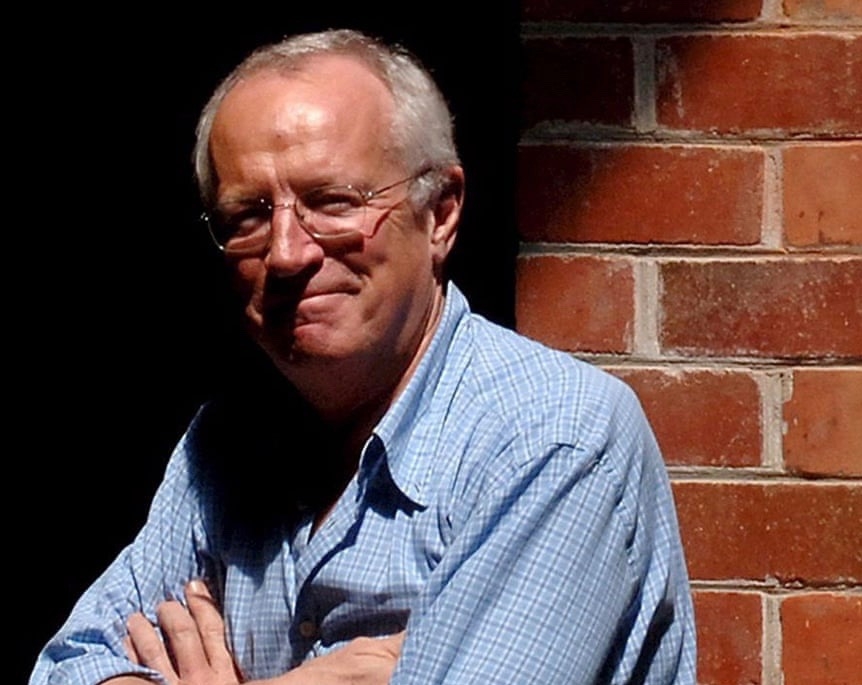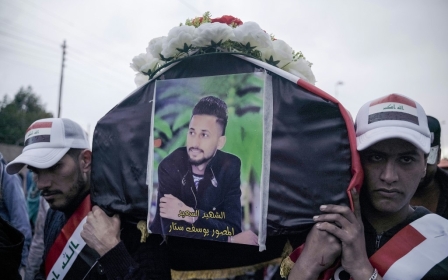Robert Fisk, famed UK Middle East correspondent, dies aged 74

The veteran British foreign correspondent Robert Fisk has died at the age of 74.
The journalist and author was reportedly admitted to St Vincent’s hospital in Dublin after becoming unwell on Friday. A source at the Independent, where Fisk was Middle East correspondent, confirmed the news of his death.
Fisk had been admitted to hospital after suffering a suspected stroke, according to a report in the Irish Times.
Described by the New York Times in 2005 as “probably the most famous foreign correspondent in Britain", Fisk won many prestigious awards during his career for his coverage of the Middle East. These included the Orwell Prize for Journalism and multiple accolades at the British Press Awards.
'Fearless and independent'
New MEE newsletter: Jerusalem Dispatch
Sign up to get the latest insights and analysis on Israel-Palestine, alongside Turkey Unpacked and other MEE newsletters
Responding to the news of his death, Micheal Martin, the Irish taoiseach, tweeted: “Saddened tonight to hear of the death of journalist Robert Fisk. He was fearless & independent in his reporting, with a deeply researched understanding of the complexities of Middle Eastern history and politics. He helped many people understand those complexities better. RIP.”
After beginning his career at the Sunday Express, Fisk moved to the Times where, from 1972 to 1975, he was the paper’s Belfast correspondent at the height of the Northern Ireland troubles.
He subsequently did his PhD at Trinity College, completing a thesis on Ireland’s neutrality during World War Two.
In 1976 he moved to Beirut where he began his career as a Middle East correspondent, covering the Lebanese civil war, the Iranian revolution, the Iran-Iraq War and the Soviet invasion of Afghanistan.
He joined the Independent in 1989, and remained their correspondent in the region until his death, covering events such as Saddam Hussein’s invasion of Kuwait and the recent war in Syria. He also reported on the Bosnian and Kosovo wars in the former Yugoslavia.
Controversies
Fisk was a controversial figure, particularly following his coverage of the ongoing Syrian war, where he was accused of pro-Bashar al-Assad bias and ignoring the testimonies of opposition figures and Syrians who suffered under his government.
His three interviews with Osama bin Laden in the 1990s has also subsequently attracted scorn, though he was one of just a few journalists to speak to the al-Qaeda leader during the Afghan war.
Following the 11 September 2001 attacks, he faced a backlash after asking what had motivated those who were responsible for the attacks.
Fisk also wrote books on Northern Ireland and the Middle East, including Pity the Nation: Lebanon at War, a totemic volume on the 15-year-conflict, and The Great War for Civilisation, in which he chronicled “the betrayals and treachery and deceit of Middle East history”.
Middle East Eye delivers independent and unrivalled coverage and analysis of the Middle East, North Africa and beyond. To learn more about republishing this content and the associated fees, please fill out this form. More about MEE can be found here.




